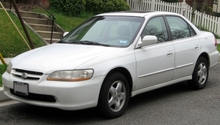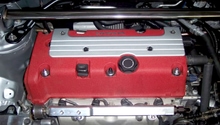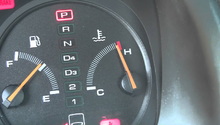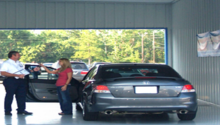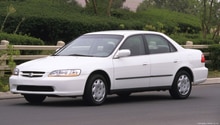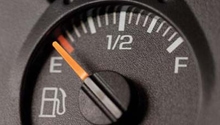Honda: 5 Symptoms of a Bad Fuel System
A bad fuel system does not have to cost you your Honda Accord or Civic. Learn the simple repairs you can do right at home, and which ones are best left to a professional.
This article applies to the Honda Accord (1990-2002), and Civic (1992-2000).
The fuel system in your Honda Accord and Civic consists of many working parts. Each part is designed to work in sync with your car's entire fuel system to deliver optimum fuel flow to the engine, and sustain the normal operation of your vehicle's idling, acceleration, and speed. While a bad fuel system could cost you money at the pump, it is recommended to diagnose malfunctioning components early to avoid more expensive repairs later. Here are the top five symptoms of a bad fuel system, and other important information you need to know about your Honda Accord's or Civic's fuel system.
Component Breakdown
Flashing Check Engine Light (CEL)
If the check engine light is flashing and your car is idling rough or stalls, the culprit is most likely a bad fuel system. Clean or replace the dirty fuel injectors, and check the fuel line pressure using a fuel pressure gauge. Visit a local mechanic to have the fuel pressure regulator replaced if it's operating without sufficient pressure.
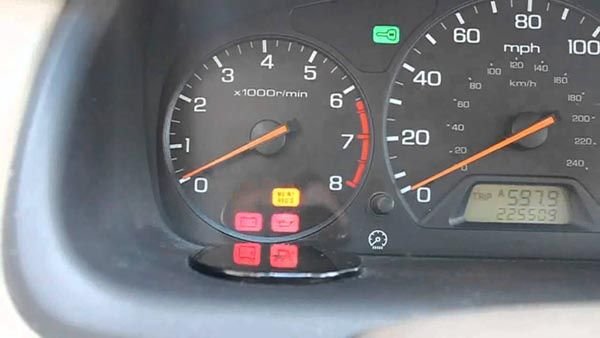
Poor Fuel Economy
Poor fuel economy can be exacerbated by a loose gas cap, clogged fuel filters and fuel lines, or clogged injectors. Check for trouble codes in your car to diagnose a faulty fuel system. You may not always experience a rough idle, but poor fuel economy is a sign of a bad fuel system, which could trigger a misfire.
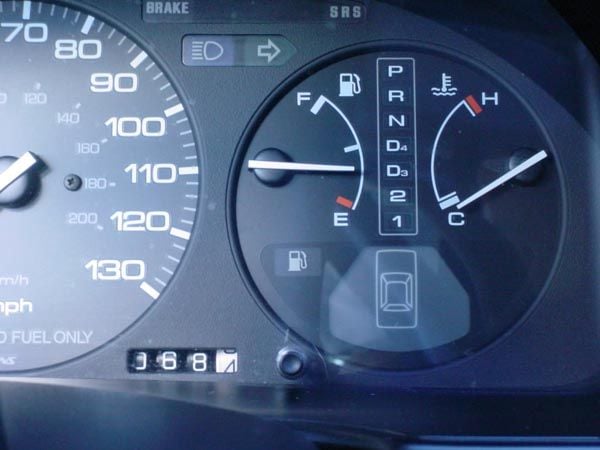
Engine Surges and Hesitations
Engine hesitation as well as engine surges are the result of either a weak and inconsistent fuel flow to engine (caused by a clogged fuel filter), or faulty spark plug wires. While you are most likely to notice engine hesitation when you're accelerating, engine surging can occur intermittently.
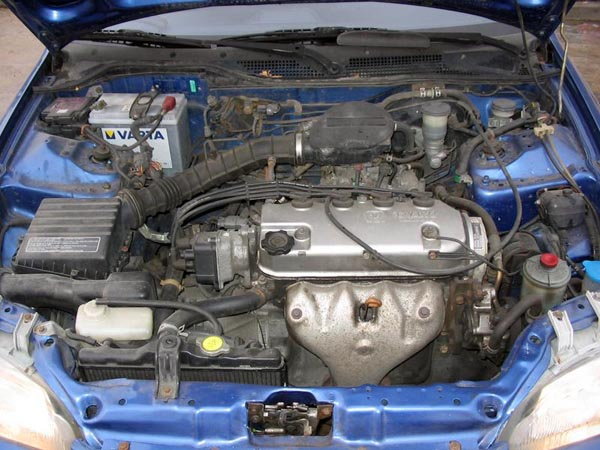
Scheduled Maintenance
Make sure to follow your regular maintenance schedule.
- Have your spark plugs changed every one to two years for copper, and every three years for iridium.
- Have your fuel filters changed at least every two years.
- Replace the injector O-rings and seals at the first sign of damage or leaks.
Common Questions
Why Do I Smell Gas in My Car?
The presence of gasoline fumes in your car means the gas cap on your car is loose or damaged from normal wear and tear. Check the seal and replace the gas cap if needed.
If the gas cap is fine, the culprit could be a leak in the Evaporative Emission Control System's (EVAP) hoses, or in the fuel tank's hoses. Other possible issues could be a leak in the purge valve or vent valve, all of which point to a faulty fuel system.
Why Does My Car Sputter at High Speeds?
Loss of pressure is causing the engine to sputter. The issue is an overworked fuel pump that will need to be replaced by you or your mechanic.
Can "Dirty Gas" Ruin My Fuel System?
While contaminated gas is uncommon, it can still crop up. Usually, your car will experience a drop in fuel economy, and the engine may knock when it starts (or not start at all). Have a local mechanic siphon out the bad gas, and check your car for any performance-related damage.
Common Issues
Problems With the Idle Speed
Idle speed—whether slow, rough, low, fast, or irregular—point to a number of possible problems. These include dirty fuel injectors, faulty spark plugs, or an electrical problem with the engine control system. Check for trouble codes, and replace worn or clogged components as part of your regularly scheduled maintenance.
Issues With the Main Relay
Symptoms of a bad main relay include:
- You will have no-start issues.
- A lack of sound in the fuel pump when engine starts.
- Overheating that will prevent the car from starting in high temperatures.
Disconnect the battery and replace the main relay using a ratchet or wrench.
A Bad Fuel Pump Check Valve
If your car has a bad fuel pump check valve, the biggest issues you'll notice are your car will run poorly, stall, or it won't start at all. Replace the fuel pump check valve with one that meets the specifications of your vehicle. You will need to refer to the owner's manual.
Related Discussions and Site
- Symptoms of Bad Fuel Pump - Honda-Tech.com
- Fuel Pump Main Relay - Honda-Tech.com
- Bad Fuel Pump Check Valve - Honda-Tech.com
- Common Symptoms of Malfunctioning Fuel Pump - eBay.com

